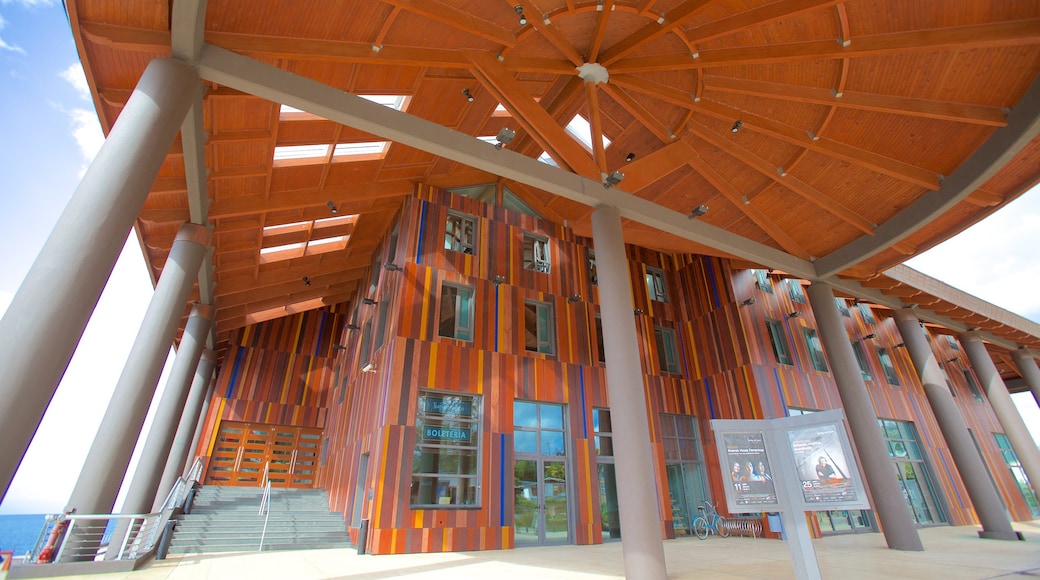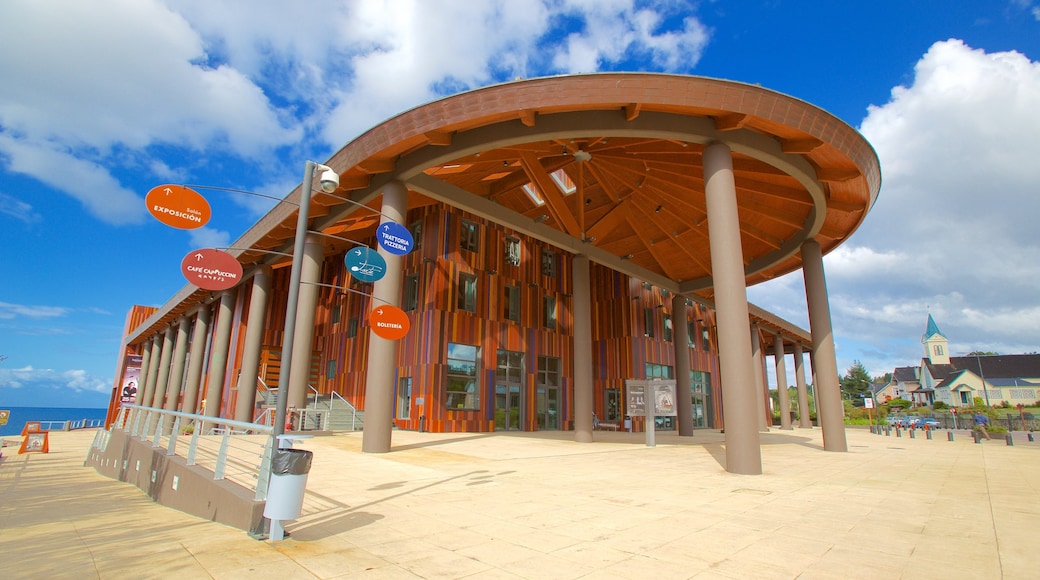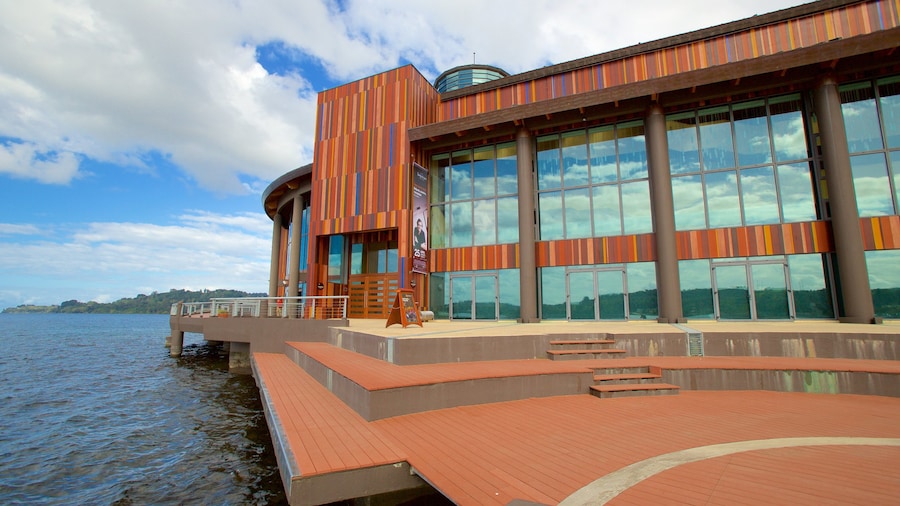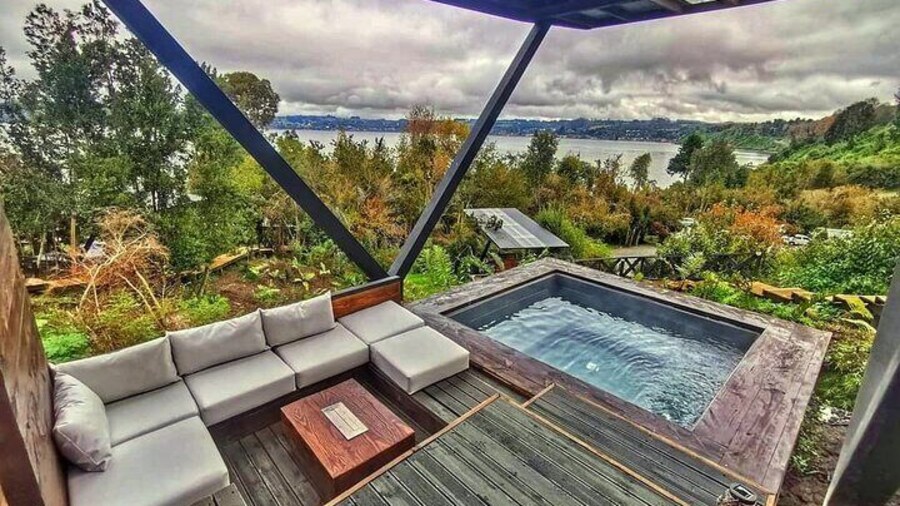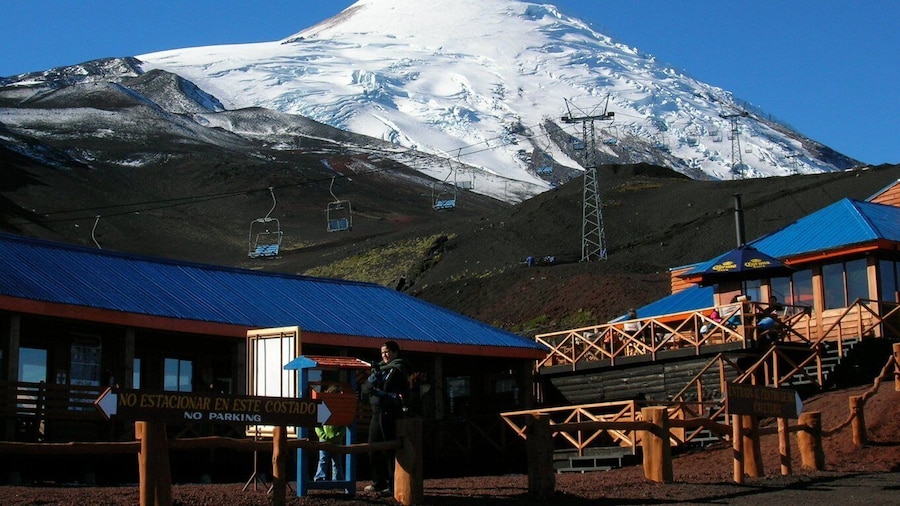Visit the “City of Music” to attend a classical concert in the picturesque setting of mountains and a large lake.
Frutillar is a quiet town on the shore of Lake Llanquihue, in the shadow of the snow-capped Osorno Volcano. The town is one of several communes heavily influenced by a large German migration in the late 19th and early 20th centuries. Enjoy a romantic stroll at dusk along the lake’s shore and see the reflection of the quaint town’s lights in the water.
One of the town’s highlights is the surprising Teatro del Lago wooden theatre that stands out in this rural commune as a beacon of sophistication and high culture. Attend a classical concert in its 1,178-seat hall. Admire the structure’s charming wood exterior against the backdrop of the placid lake and snow-covered volcano.
At the Museo Colonial Aleman, learn about the city’s German origins. Surrounded by 7 acres (3 hectares) of parkland, this quaint building recreates the daily lives of the German settlers in the 1800s. Visit the other German sites on the grounds, including Molino House, Herrero House and the cemetery.
Near the lake in the city centre, find the town hall and the Frutillar Catholic Church (Iglesia Inmaculada Concepción). Admire its pleasant white wooden façade and black spire. Enter through the brown portal and gaze up at the golden arches on the white ceiling of the nave.
Look around the yacht club at the Cofradia Nautica de Frutillar. Peruse the range of boats and watch sailing schools conducting lessons.
For a glimpse of the region’s picturesque nature, visit the Parque Forestral Edmundo Winkler in Lower Frutillar. Find a variety of plants and trees in this 81-acre (33-hectare) forest.
The region is fairly wet year-round. The driest and warmest months are between December and February.
Frutillar is in the Los Lagos district in southern Chile, 19 miles (31 kilometres) north of Puerto Varas and 30 miles (48 kilometres) north of Puerto Montt. Arrive at the small airport serving the country’s capital, Santiago de Chile.
Remember the sights and sounds of Frutillar long after the end of your stay.


